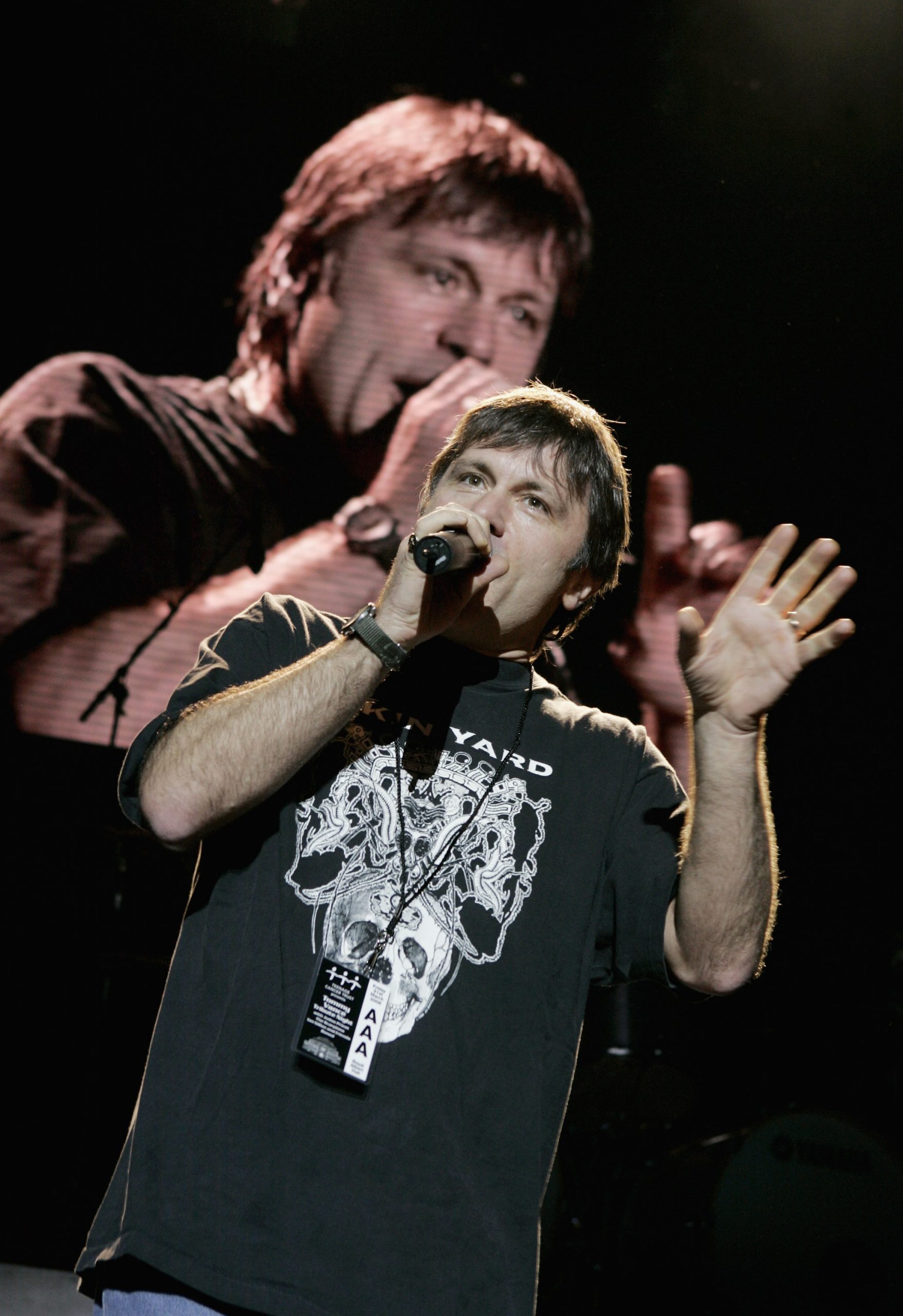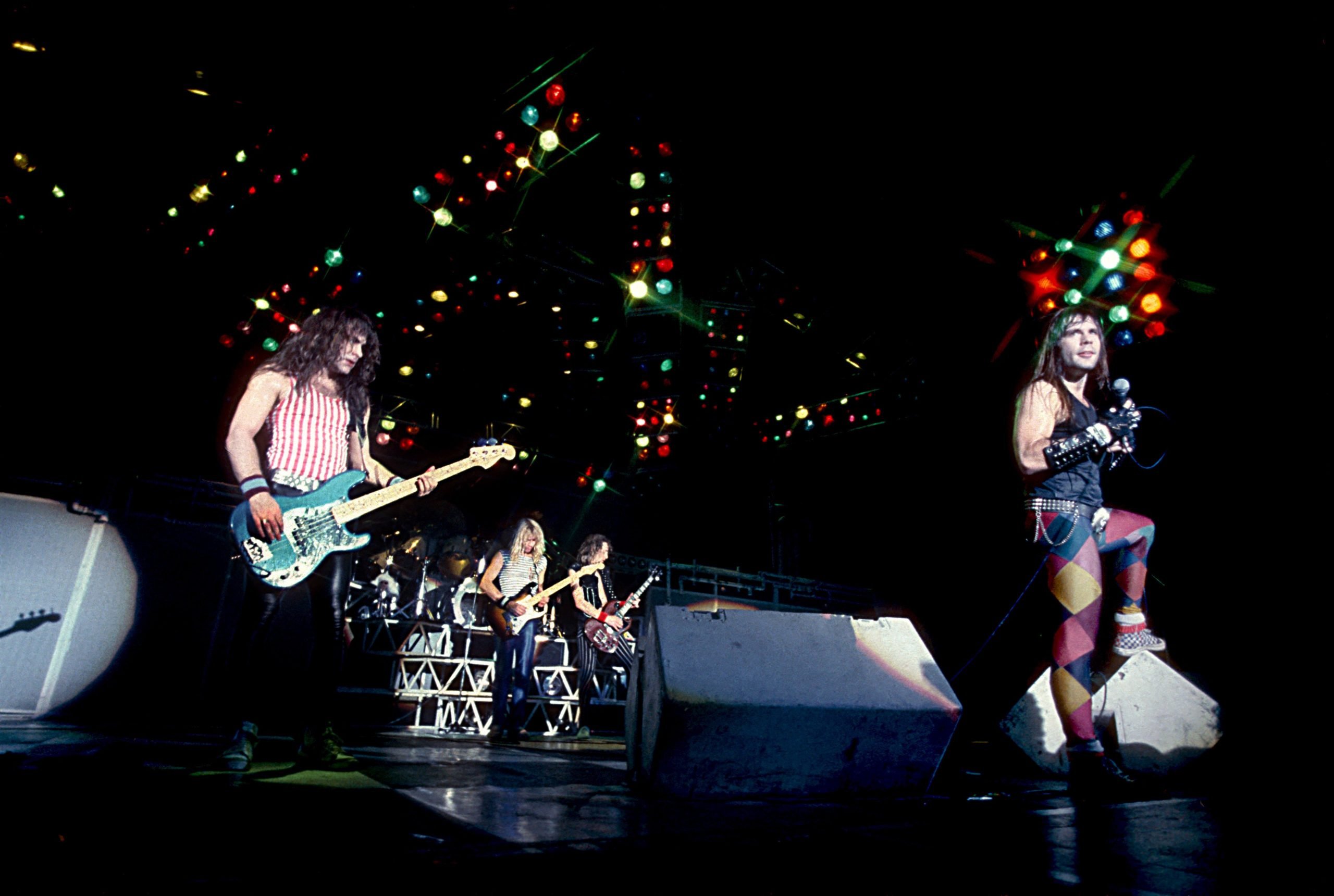A Growing Need to Boost HPV Vaccine Usage
- “Iron Maiden” rocker Bruce Dickinson, 65, blames his oral cancer journey on the human papillomavirus (HPV), which is a group of more than 200 related viruses that are spread through vaginal, anal, or oral sex.
- Since his diagnosis, Dickinson has advocated for people to consider the HPV vaccine, which helps protect against HPV and the risk of cancers associated with it.
- Research to be presented at the American Society of Clinical Oncology (ASCO) is expected to show less than half of young adults and adolescents are taking the vaccine – especially among young males.
- The HPV vaccine, like Gardasil 9, offers protection against “nine HPV types” and creates an immune response to HPV 16, the primary cause of 92% of head and neck cancers.
“Iron Maiden’s lead singer Bruce Dickinson, 65, is an oral cancer survivor who once had a golf-ball-sized tumor at the base of his tongue. He blames his cancer diagnosis on the human papillomavirus (HPV), which is often spread through oral sex.
The human papillomavirus (HPV) is “a group of more than 200 related viruses, some of which are spread through vaginal, anal or oral sex,” the National Cancer Institute says.
Read More
HPV vaccination rates improved in the U.S. between 2011 and 2020. However, young men’s vaccination rates went from “7.8% to 36.4%” during the nine years compared to “37.7% to 49%” of vaccinated young women.
With fewer than half of young people vaccinated, more education efforts are needed to increase vaccinations. The need for more HPV vaccinations will likely be a focus for the important cancer-focused conference.
Expert Resources on Oral Cancer and HPV
How HPV is Related to Cancer
HPV infection is linked to multiple cancers, and many sexually active people will get it eventually.
Although nearly all cases of cervical cancer are indeed caused by HPV, people should also be aware that HPV puts both men and women at risk of developing several other cancers, such as oral cancer and cancers of the vagina, penis, anus, and throat.
WATCH: Myths about HPV.
Overall, HPV is believed to cause 90% of anal and cervical cancers, approximately 70% of vaginal and vulvar cancers, and 60% of penile cancers.
“There are no screening guidelines to screen for throat cancer, unlike cervical cancer with pap smears,” says Dr. Jessica Geiger, a medical oncologist at Cleveland Clinic Cancer Center, previously told SurvivorNet. “There are no standard tests to determine if you harbor the virus.”
On the plus side, HPV-related throat cancers are generally very responsive to a combination of radiation and chemotherapy treatments, according to Dr. Geiger.
“The cure rates for people who have HPV-related disease are a lot higher than those who have tobacco-related throat cancer,” she said.
Protecting Against HPV
Nearly 80 million Americans have HPV today, according to the Centers for Disease Control and Prevention. It impacts men and women and won’t cause problems for most people.
However, it can lead to cancer in a small percentage of cases.
The HPV vaccine is recommended to protect against HPV and HPV-related cancers.
Gardasil 9 is an HPV vaccine that offers protection against “nine HPV types: the two low-risk HPV types that cause most genital warts, plus seven high-risk HPV types that cause most HPV-related cancer,” according to the National Cancer Institute.
The vaccine creates an immune response to HPV 16, the primary cause of 92% of head and neck cancers. Once children are vaccinated, they cannot be infected with that strain. For parents, the HPV vaccine enables them to protect their children from developing cancer in the future.
“The key with the vaccine is that you receive it before you have sexual encounters,” says Dr. Geiger. “So that’s why these vaccines are approved for young children ages 9, 10, 11 years old, up to age 26.”
According to the CDC, the HPV vaccine is recommended for all male and female preteens 11 to 12 years old, and it is given in two doses between six and 12 months.
The series of shots can also start as young as 9.
The CDC also notes that teens and young adults through age 26 who didn’t start or finish the HPV vaccine series also need the vaccine.
Additionally, people with weakened immune systems or teens and young adults who started the series between 15 and 26 should get three doses instead of two.
Although adults up to age 45 can still receive the vaccine, it’s not recommended for everyone older than 26. Still, a person older than 26 could choose to get vaccinated after talking to their doctor about possible benefits, despite it being less effective in this age range, as more people have already been exposed to HPV by this point.
WATCH: Should children get the HPV Vaccine?
Vaccine hesitancy can impede people from getting the vaccine. The concern may come from parents who feel the vaccine paves the way for early sexual activity. For this reason, some health practitioners educate the public differently about the vaccine.
“I think rebranding the vaccine as a cancer vaccine, rather than an STD vaccine, is critically important,” says Dr. Ted Teknos, a head and neck cancer surgeon and scientific director of University Hospital’s Seidman Cancer Center.
Dr. Teknos believes concerted efforts to “change the mindset around the vaccine” can make a difference.
Bruce’s Throat Cancer Diagnosis
Like a true musician, Dickinson knows when something is amiss with his work. A noticeable change in his voice was the beginning of his cancer journey. The change led him and his doctors to discover two tumors on the back of his tongue.
“I had a three-and-a-half centimeter [tumor] – basically a golf ball – living down at the base of my tongue right at the base…So, that was sitting there for, I really don’t know how long by the time it got big enough to notice,” Dickinson said to Yahoo News.
Fortunately, Dickinson’s cancerous tumor was caught in its early stages and was treated. He underwent seven weeks of treatment to rid himself of the tumor. He underwent radiation therapy, which uses high-energy beams aimed at cancer cells to kill them.

“You can imagine to get rid of that with radiation – the inside of my head has been cooked pretty effectively,” he told BBC, according to U.K.-based news outlet Express.
He said he was declared “cancer-free” in May 2015.
Dickinson also suspected how he ended up with throat cancer in the first place.
“I never smoked,” he said to Billboard.
“It’s a virus. HPV – human papillomavirus. They all are. I’m almost willing to bet anytime you hear of someone getting tonsil cancer, throat cancer, lymph cancer, whatever it is, if they’re not heavy smokers and not massive heavy drinkers, it’s a 500% increase in this type of cancer in men over 40,” Dickinson said.
After receiving cancer treatment, Dickinson says it took a few months to regain his voice.
Questions for Your Doctor
If you are concerned about your cancer risk related to the human papillomavirus or whether HPV caused the cancer you have. In that case, you can use one of the conversation starters below when talking with your doctor:
- I am unsure if I received the HPV vaccine when I was younger. What can I do to know for sure?
- If I experience symptoms that could be because of HPV, what tests can I undergo to know?
- How can I know if HPV caused the cancer I have?
Learn more about SurvivorNet's rigorous medical review process.

